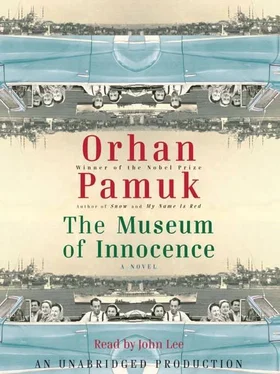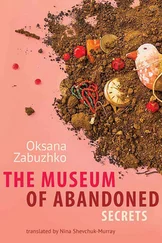59 Getting Past the Censors
I’D KNOWN for years, from the stories in the news, that all films, domestic and foreign, had to clear the state censors before theatrical release, but before setting up Lemon Films I had no notion of their power in the film business. The papers mentioned the censors only when they banned films much esteemed in the West, as with Lawrence of Arabia , categorically banned for insulting Turkishness, and Last Tango in Paris , trimmed of its sex scenes to make the film more artistic, and more boring than the original.
There was one partner of the Pelür Bar who’d been working at the board of censors for many years; Hayal Hayati Bey was a frequent visitor to our table, and one evening he told us that, actually, he believed in democracy and freedom of expression more fervently than any European, but that he could not allow those who would deceive our innocent and well-meaning nation to exploit the cinematic arts toward that foul end. Like so many other Pelür habitués, Hayal Hayati also worked as a director and a producer, and said he’d accepted the board position so as “to drive the others crazy!”-a claim he punctuated as he did every joke, by giving Füsun a wink. Hayal Hayati got his nickname (meaning “Dream”) from the Pelür crowd because he used that term so often when making his rounds of the tables, talking about the films he was going to make. Every time he came to ours he would look soulfully into Füsun’s eyes, and he would tell her about one of his dream films, asking her each time for an “immediate and sincere” appraisal devoid of “commercial considerations.”
“That’s a beautiful idea for a film,” Füsun would say each time.
“When we make it you’re going to have to agree to star in it,” Hayal Hayati would reply, in the manner of a man who always acted instinctively and from the heart. We were discovering that it would take some time for us to get our first film off the ground.
According to Hayal Hayati, the Turkish film industry was free to do more or less what it liked, provided that films did not include lewdness or sex scenes, or unacceptable interpretations of Islam, Atatürk, the Turkish army, the president, religious figures, Kurds, Armenians, Jews, or Greeks. Of course, he’d smile when he said it, because for half a century the members of the board of censors did not just obey the dictates of the state, banning any subject that made those in power uneasy, but had gotten into the habit of acting on their own agendas, banning whatever happened to annoy or offend them, and like Hayal Hayati, deriving considerable pleasure when using their power arbitrarily.
Hayati Bey told stories about the films he had banned during his time on the board with the relish of a hunter bragging of the bears he’d caught in his traps. We laughed at his stories as much as anyone. For example, he’d banned one film about the adventures of a hapless security guard on the grounds that it “degraded Turkish security guards;” and a film about a wife and mother falling in love with another man because it “insulted the institution of motherhood;” and a film about the happy adventures of a little truant was prohibited for “alienating children from school.” Unfortunately the first film Hayati Bey made after his term on the board ended was itself also banned, “and, sadly, it was a capricious decision motivated by personal matters.” Hayati Bey would get very angry whenever it was mentioned. The film, which had been very costly to make, was banned in its entirety on account of a dinner scene in which a man became enraged at the family dinner table because there was no vinegar in the salad, and the censors felt called to “protect the family, the foundation of society.”
As he sat with us explaining how this scene and two other family quarrels, likewise offensive to the censors, had been taken in all innocence from his own life, it became clear that what had really upset Hayal Hayati was being betrayed by his old friends at the board of censors when they banned his film. If we were to believe what we were told, one night he’d gone out on a bender with them and ended up brawling in an alleyway with his oldest friend on the board, ostensibly over a girl. When the police picked them up off the muddy street and carted them to Beyoğlu Police Station, neither lodged a complaint, and so were encouraged by the police to kiss and make up. But subsequently, to win approval for theatrical release and save himself from bankruptcy, Hayal Hayati, having still influence enough to win a second consideration, was obliged to remove every quarrel remotely demeaning to the institution of the family, with the exception of the one in which the brute of a son beat up his younger sister at the behest of his devout mother; with this editing, the film passed the board of censors.
Hayal Hayati remained convinced that it was “a relatively good thing in the end” if censorship led only to the cutting of scenes deemed objectionable by the state. For even a heavily cut film could be shown in the cinema, and if it still made sense, then you could make back your investment. The worst possible outcome was an outright ban. To prevent this disaster, the state was prevailed upon kindly to divide the censorship process into two stages.
In this first phase one would send the screenplay to the board for approval of the subject and the content of the scenes. As was typical of all situations involving work for which citizens had to seek “permission” from the state, a complex bureaucracy of permits and bribery had developed, which in turn gave rise to a network of agents and agencies offering to guide a citizen’s application. I myself recall many times during the spring of 1977, sitting across from Feridun in the offices of Lemon Films, smoking cigarettes as we considered at length which agent was right for Blue Rain .
There was a hardworking, well-liked Istanbul Greek known as Daktilo Demir, or Demir the Typewriter. His manner of inoculating a screenplay so as not to offend the censors was to rewrite it, on his own famous typewriter, and in his own style. This hulk of a man, a former boxer (he’d once worn the uniform of the Kurtuluş team), was in fact a very refined man possessed of an elegant soul. He knew better than anyone how to make a script acceptable, rounding off its sharp corners, softening into innocence the harsh divisions between rich and poor, worker and boss, rapist and victim, virtue and evil, and offsetting the effect of any harsh or critical pronouncement that the hero might make at the end of the film-words likely to offend the censors but delight the audience-by the addition of a few bromides about the flag, the nation, Atatürk, and Allah. His greatest gift was his flair for taking the sting out of the most vulgar and extreme moments in the screenplay: He would always find a light and witty way of returning it to the innocent charm of everyday life. Even the big firms that gave regular bribes to the board of censors would entrust their screenplays to Daktilo Demir, even in the absence of unsuitable material, just so that he could inject into them the sweet aura of childish magic that was his trademark.
When we discovered how much we owed to Daktilo Demir for the most lyrical moments in those films that had so affected us the previous summer, the three of us-Feridun thought Füsun should come, too-decided to pay a call on the “Screenplay Doctor’s” home in Kurtuluş. In a room filled with the ticking of an enormous wall clock, we saw the old Remington on which he had earned his legendary name, and we felt the same distinct magical aura as in the films he’d rewritten. Demir Bey welcomed us graciously, saying that he would be delighted if we left our screenplay with him, so that if he liked it he could recast it on his typewriter into a version sure to pass the censors. Showing us the stack of project files between the plates of kebab and fruit he had set out, he went on to disclose that the process would not be quick considering his vast workload; gesturing at his twenty-something twin daughters, sitting at the end of the enormous dining table, gazing myopically through their owlish glasses at the screenplays their father couldn’t find time for, he allowed, with paternal pride, that they had become “even better” than he was at getting scripts into shape. Füsun was very pleased when the more buxom of the twins remembered her as one of the finalists in the Milliyet National Beauty Contest from years earlier. What a shame it was that so few others did.
Читать дальше












